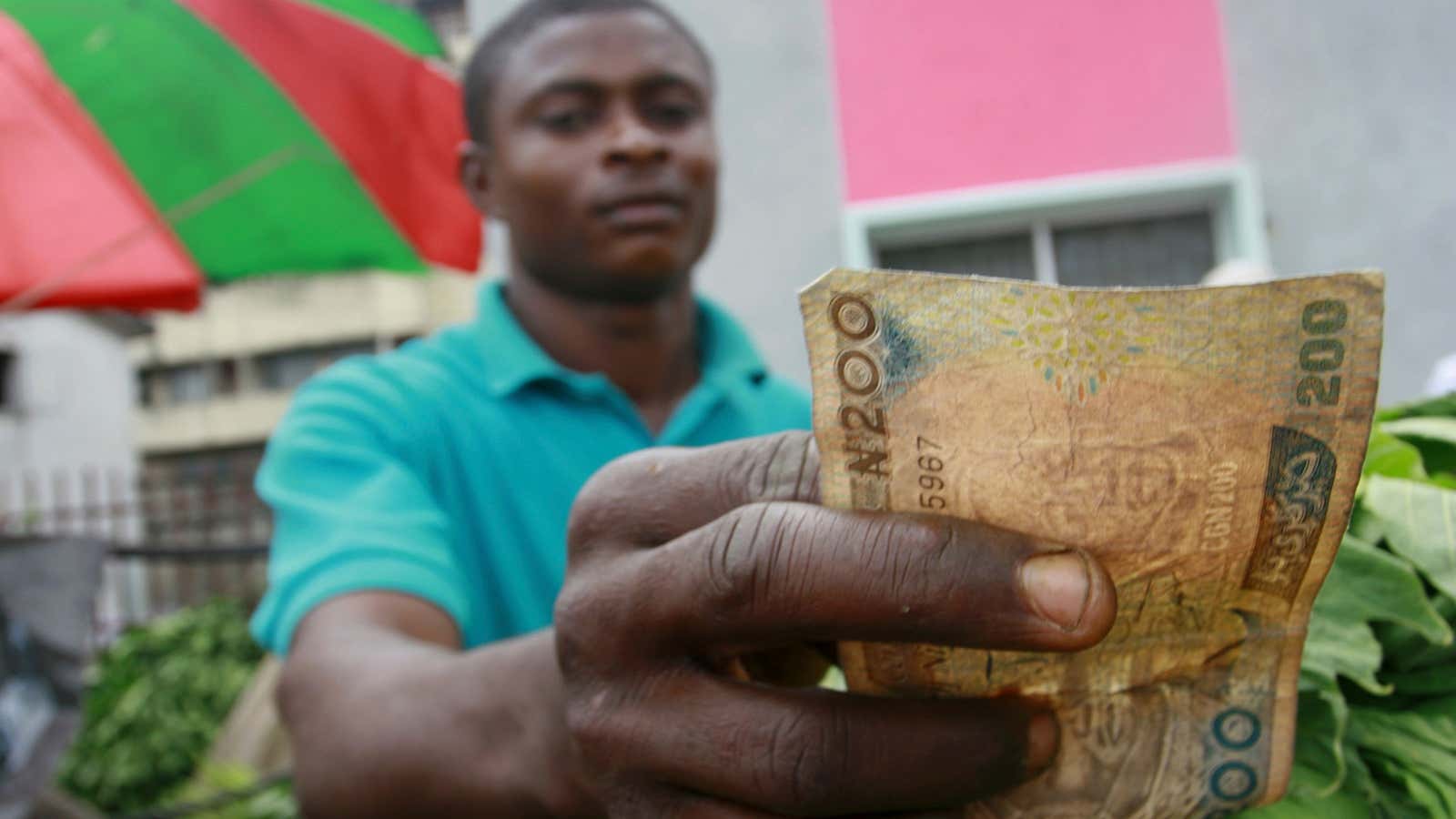When Nigeria announced in October that it would redesign three currency notes as a means to mop physical cash away from private vaults and fight inflation, it sparked a frenzy that caused the naira to weaken sharply against the dollar within days. That initial storm has passed, three weeks later, with the local currency reverting to around N710 to the dollar on the street after soaring as high as N830.
Nigerians now seem to have accepted the prospect of the new currency notes and the Central Bank of Nigeria (CBN) is doubling down, with measures to ensure that anyone with old notes can meet the deadline to return them. One measure is especially aimed at residents in places with low penetrations of commercial banks and includes the use of agent banking.
Agent banking grows in strength
By Jan. 31 next year, all old 200, 500, and 1000 naira notes will cease to be legal tender. But how will people in rural areas who have the notes but have no bank accounts change theirs before then?
Nigeria has 4.5 bank branches per 100,000 adults, less than Ghana (6.1), Botswana (9), South Africa (9.2), Mauritius (15.5), and Seychelles (46). Nigeria’s ratio has been declining since 2010 with the rise of cashless transactions that require less time in physical banks, yet around 40 million people still do not have bank accounts. The solution to the gap has been the rise of agent banking—a system that allows authorized (usually low to middle income) individuals to offer account opening, cash deposit and withdrawal services to the public using point-of-sale (POS) devices.
Agents typically set up shop in small kiosks by the corner of streets, charging a fee for their services. The business experienced a boom at the beginning of the pandemic two years ago.
These agent banking operators will now help the CBN achieve its latest goal, per the bank’s announcement (pdf) on Nov. 11: “Agent locations across the country have been fully enabled for [bank verification number] registration, opening banking accounts/wallets & e-Naira wallets, electronic card distribution, and cash deposit, among others.” The agents will be given priority at bank branches when they come to deposit the cash they have collected.
More transactions to process for OPay and co
In many places in Nigeria today including Lagos, the main way to withdraw cash is by spotting an agent wielding a POS, not an ATM. While some banks provide the devices, the major players are fintech companies like TeamApt, OPay, and Paga.
These companies already process billions of dollars in monthly transactions; TeamApt’s CEO Tosin Eniolorunda said a few days ago that the company now does $10 billion monthly for 400,000 businesses. The CBN’s use of agents to recover cash within the coming weeks will further increase transaction volumes across these companies’ dashboards.
That could strengthen the case for investments in agent banking startups. This year, Nigerian startups that have raised money to play in the agent banking space include Crowdforce ($3.6 million), and Kippa ($8.4 million).
